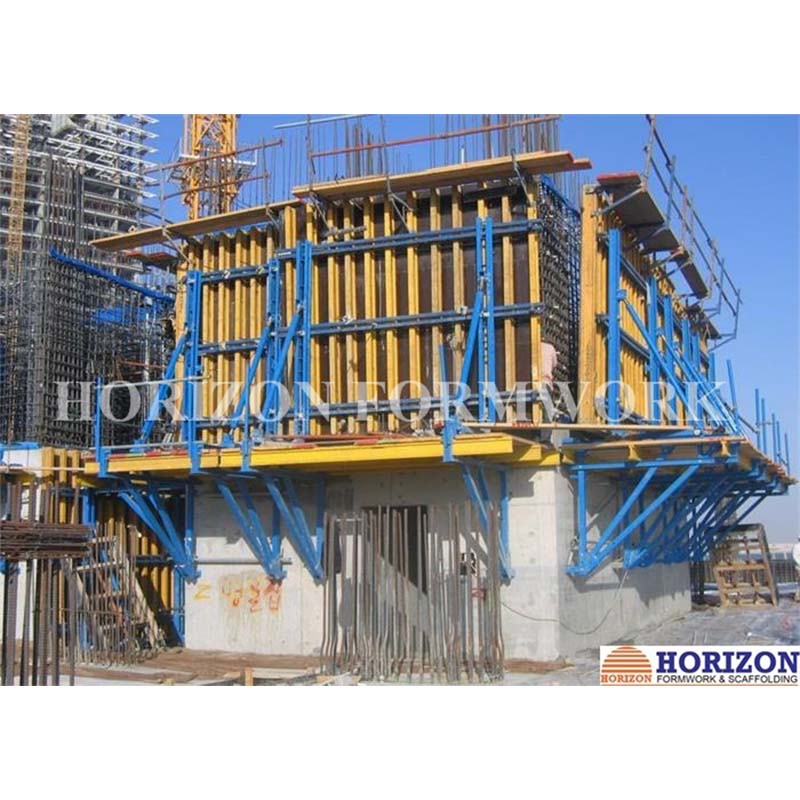Sep . 23, 2024 16:05 Back to list
Exporting Formwork Solutions for Beams and Slabs Construction Industry
Formwork for Beams and Slabs An Overview of Exporter Solutions
In the construction industry, formwork plays a crucial role in shaping and supporting concrete structures during the curing process. Particularly in the construction of beams and slabs, the right formwork system is essential for achieving structural integrity, efficiency, and cost-effectiveness. As global construction projects continue to soar, the demand for high-quality formwork solutions has surged, leading to a thriving export market for formwork products tailored for beams and slabs.
The Importance of Formwork in Construction
Formwork is a temporary structure used to mold concrete into the desired shape before it sets. It serves multiple functions it supports the weight of the wet concrete, preserves the shape during curing, and allows for the placement of reinforcement materials. The quality and reliability of formwork directly impact the final outcome of concrete slabs and beams, influencing both aesthetics and structural performance.
Beams and slabs are fundamental components of most buildings, providing the necessary support for loads while distributing weight throughout the structure. Therefore, efficient formwork solutions are vital for enhancing construction speeds and ensuring the durability of concrete elements.
Types of Formwork Systems
There are several formwork systems utilized in the construction of beams and slabs, including
1. Traditional Timber Formwork This is the most basic type of formwork, made from timber planks. Although it is cost-effective, it is labor-intensive and may not be as durable as other options.
2. Engineered Formwork Systems These are pre-manufactured formwork solutions made from materials like steel or aluminum. They offer increased strength, reusability, and can be quickly assembled and disassembled, making them popular for large-scale projects.
3. Plastic Formwork Lightweight and easy to handle, plastic formwork systems are ideal for quick construction. They are resistant to moisture, providing a longer lifecycle compared to traditional timber.
4. Custom Formwork Solutions Many exporters provide customized formwork solutions specifically designed to meet unique project requirements. These solutions can be tailored in terms of size, shape, and material.
Exporting Formwork Solutions
The global construction sector is characterized by diverse requirements and regulations, prompting exporters to offer adaptable formwork solutions. Countries with a booming construction industry, such as those in the Middle East, Asia, and Africa, have seen an increase in demand for high-quality formwork products.
formwork for beams and slabs exporter

Exporters of formwork for beams and slabs benefit from the following strategies
- Understanding Local Markets Successful exporters prioritize market research to understand regional construction practices, regulatory constraints, and consumer preferences. This knowledge allows them to tailor their products effectively.
- Quality Certifications Ensuring that products meet international quality standards is critical for gaining trust in foreign markets. Often, exporters seek ISO certifications and compliance with local construction codes to demonstrate their commitment to quality.
- Technological Innovation The incorporation of advanced technologies in formwork design, such as automated assembly processes and modular systems, can set exporters apart from competitors. Providing advanced solutions can significantly enhance efficiency on job sites.
- Sustainability Considerations With growing emphasis on sustainable construction practices, exporters are increasingly focusing on eco-friendly materials and practices. Offering recyclable and sustainable formwork options can attract environmentally-conscious buyers.
Challenges in the Export Market
While the demand for formwork solutions is growing, exporters face several challenges
- Logistical Issues Transportation of large formwork components can be costly and complex. Exporters must devise effective logistics strategies to minimize delays and damage.
- Cultural Differences Navigating the regulatory and business etiquette variations across countries can pose challenges for exporters. Building strong relationships with local partners can help ease this process.
- Competition The formwork export market is competitive, with numerous players offering similar products. Differentiating through quality, innovation, and customer service is crucial for success.
Conclusion
The export market for formwork solutions for beams and slabs is poised for growth as the construction industry expands globally. By focusing on quality, innovation, and sustainability, exporters can capitalize on this opportunity. As they navigate the challenges of global trade, fostering relationships with local contractors and understanding regional market dynamics will be essential for thriving in this competitive arena. In doing so, they contribute to building the infrastructures of tomorrow, ensuring safety, durability, and efficiency in concrete construction.
-
High-Quality U Head Jack Scaffolding – Reliable Scaffolding Jack Head Manufacturer & Factory
NewsJul.08,2025
-
High-Quality I Beam H20 Leading Timber Beam H20 Material Factory, Exporters & Manufacturers
NewsJul.08,2025
-
High-Quality Powder Coating Steel Formwork - Durable & Corrosion Resistant Solutions
NewsJul.07,2025
-
Inclined Column Formwork Supplier – Durable & Precise Solutions for Unique Structures
NewsJul.07,2025
-
High-Quality Water Stop Solutions Trusted Water Stop Company & Suppliers
NewsJul.07,2025
-
High-Quality Formwork Material Supplier Reliable Manufacturer & Factory Solutions
NewsJul.06,2025